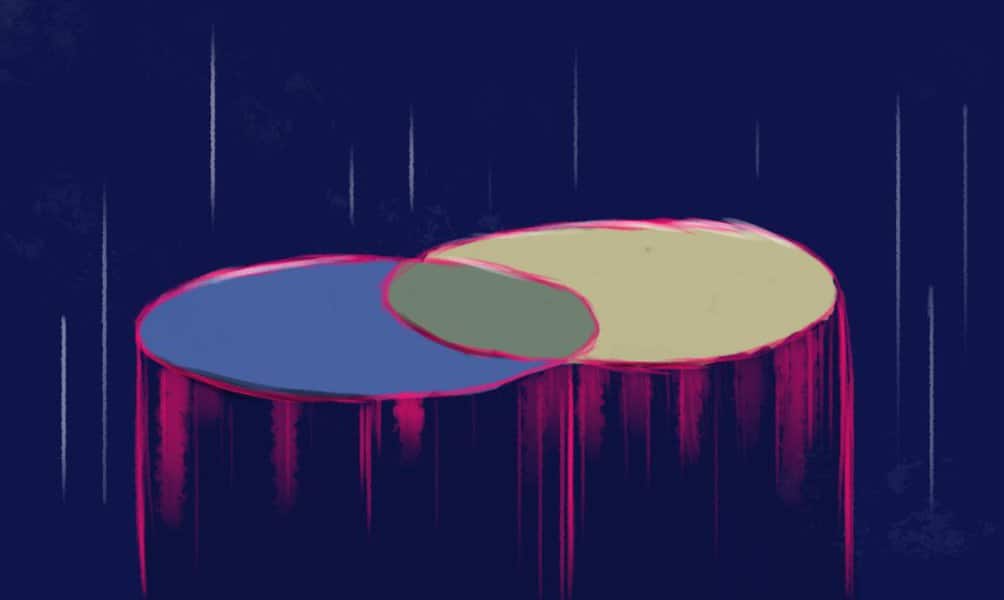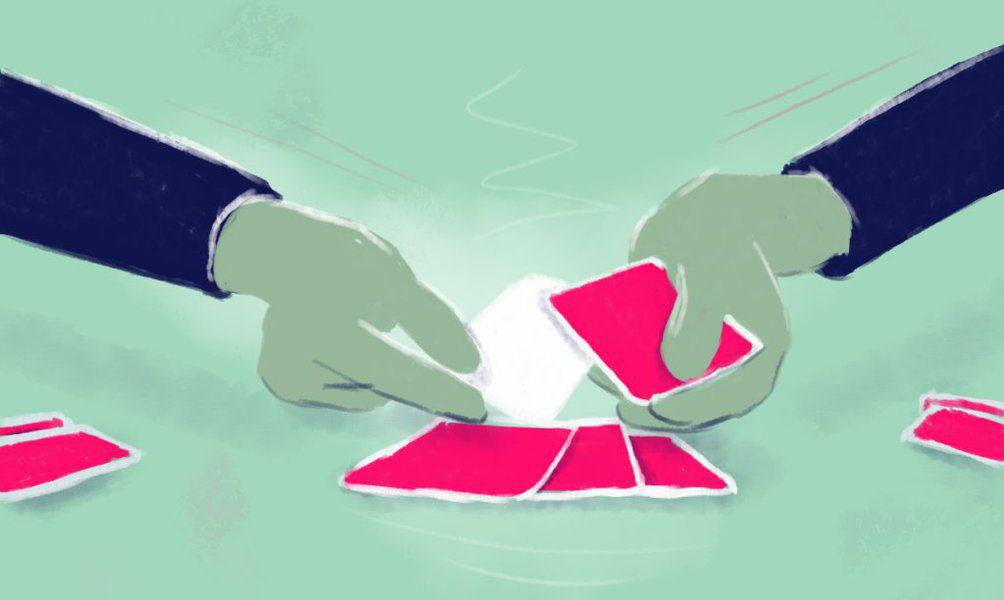You’ve probably heard that customer relationship management (CRM) software is the go-to choice for sales, but a solid alternative is enterprise resource planning (ERM) systems.
But how do you know which is right for you and your business? We know you’re busy and may not have time to do your due diligence. So we’ve gone ahead and done it for you in this guide, which lays out all you need to know about CRM and ERP to help you choose the best tool for your business.
What is CRM?
A CRM system is a software tool that creates a vast database of customer information, tracking and recording all customer interactions with the company in an effort to strengthen relationships.
CRM software supports sales reps by presenting customer data in one easily-accessible place, enabling them to view customer profiles and tailor their sales approach to the specific customer. CRMs also typically include functions like database management, sales automation, lead generation and nurturing, and customer analytics.
With these features, a CRM system aims to improve customer retention, increase sales, and ultimately drive business growth by better understanding customers and their needs.
What is ERP?
An ERP system is similar, but with a different focus. Rather than zeroing in on the customer, ERPs offer a shared database of operational and financial information, connecting production, order fulfillment, and accounting. ERP software manages the flow of goods in connection to company financials.
Each function has a different module within the software, and the information each generates feeds back into the larger database. With ERP, anyone can view and generate up-to-date reports on company activities and make informed decisions on the fly.
ERP aims to increase efficiency, reduce costs, and improve decision-making by providing real-time data on key business processes. In recent years, some ERPs have integrated AI and machine learning to automate certain processes and shape financial planning.
Benefits of CRM and ERP
Both CRM and ERP smooth everyday operations by creating a centralized database, yet while CRM focuses on front-end operations, ERP focuses on back-end management. The result is varying uses and advantages.
Benefits of CRM
A CRM improves company interactions with the customer by storing and managing relevant data and streamlining sales operations. With a CRM, your reps should close sales faster and better retain clients, driving long-term growth and promoting customer loyalty.
For example, the marketing team might get a lead’s name and email address from a trade show and put it into the CRM. The sales team would then see this and open their sales pitch with a mention of how great it was to meet them at the trade show. Suddenly we’ve got that personal connection!
Down the line, if the customer returns with a complaint post-sale, a customer service rep can view their file and see the exact specifications of their order and their history and provide a customized response.
Beyond helping employees and customers, decision-makers can use CRMs to get a macro view of the sales situation, review what’s working best, and tweak their strategy to create the optimal process.
Benefits of ERP
An ERP also stores data, but rather than focusing on the customer it presents a centralized database of operational and financial data. An ERP helps ensure there’s a product for sales to sell, the order is fulfilled, and the money is properly received and managed.
The purchasing department will record in the ERP, for instance, that they’ve ordered a new stock of goods at a certain price. Accounting will then know of the expense and sales will know how many they can sell. Once a sales ticket is made, order fulfillment knows which goods to deliver, and accounting knows how much to bill the customer.
An ERP simplifies bookkeeping and warehouse management and gives decision-makers a comprehensive view of sales and operations, potentially uncovering insights that increase optimization.
Similarities Between CRM and ERP
CRMs and ERPs are both software tools that centralize data in order to provide insights and boost productivity. They emerged around the same time, in the 1980s and 90s, though CRM was quicker to jump to the cloud because of its simpler services.
Today, CRMs and ERPs can be hosted on-premises or in the cloud. And both aim to break down information to help streamline operations.
Differences Between CRM and ERP
By now you probably have a good idea of their differences, but it’s still worthwhile to go through the whos, whats, whens, wheres, and whys of CRM versus ERP.
Who Do CRMs vs ERPs Focus On?
CRMs focus on leads, prospects, sales in progress, and existing and former clients. They’re generally used by employees who directly interact with customers, which usually means the marketing, sales, and customer service teams.
ERPs focus on supporting company managers by centralizing operational and financial data and creating live reports to make strategic decisions. Every employee who works in these departments updates the ERP with their tasks, and the ERP condenses that data down for decision-makers to see all at once.
What Do CRMs vs ERPs Manage?
CRMs manage customer data, recording the customer’s personal details, level of interest, purchases, and every interaction the customer has with the company.
An ERP deals with product information management, giving a live inventory count as managers order and deliver products and update the financials to match.
If the company manages a physical warehouse, tracking how many units you have at any given time can be difficult, particularly if your business takes off and the goods start flying off the shelves. Running out of stock at such a time, or cash on hand, could be disastrous, so an ERP is often a crucial business tool.
When Do CRMs vs ERPs Focus On?
You probably noticed the difference in the last words of their acronyms: management versus planning. It’s a meaningful distinction, as CRMs focus on using the information a business already has, while ERPs are more forward-thinking, using data to plan for the future.
Though some CRM tools provide lead generation, they usually focus on existing customers and keep an ongoing database of past customers.
Meanwhile, an ERP system focuses on the now: current inventory management, accounts payable and receivable, and unfulfilled orders. The goal of ERP is to keep the company moving forward without running out of goods or money.
Where in the Company are CRMs vs ERPs Used?
CRMs are used mostly by marketing, sales, and customer service, while ERPs are mainly used by the supply chain and financial departments.
ERPs tend to have a larger scope, as they often connect distinct business functions, such as production, finance, and human resource management. Some ERPs may even include a CRM component, making it an all-in-one platform!
Why Do Companies Implement CRMs vs ERPs?
A company might choose to implement a CRM if their sales are flagging to attract and process customers more efficiently. CRMs can benefit businesses with ten customers or a million.
Additionally, as more and more companies flood the market, consumers increasingly see customer experience as a key differentiator. A CRM helps businesses stay relevant by reducing response times and personalizing interactions, hopefully resulting in exemplary customer service and increased sales.
On the other hand, a company might implement an ERP if they’re bogged down by the logistics of supply chain management or accounting. ERPs most benefit businesses with complex supply chains, long billing cycles, or huge order numbers.
Conclusion
A CRM aims to help grow your business by attracting and managing customers, while an ERP seeks to manage that growth by tracking logistics and finances. Your best option will depend on your business needs, but we recommend you start with a CRM and boost your sales.
Then, once business is booming, you can decide whether to supplement your CRM with an ERP, or replace it altogether. Either way, what matters most is your business success.
FAQs
What are some examples of CRM and ERP software?
Some examples of CRM software are HubSpot CRM, Zoho CRM, Salesflare, and Pipedrive. Some examples of ERP software are SAP ERP, Oracle Fusion Cloud, Workday ERP, and Sage Interact.
Some providers supply both, such as Microsoft Dynamics CRM and ERP. Of course, you’ll have to pay for both softwares separately.
Which one costs more: CRM or ERP?
ERPs have more users and process more data, so they’re generally more expensive than CRMs.
For a small business, the average cost of a CRM system is $12 to $20 per user per month, while an ERP system could cost an average of $1,500 and $3,000 per month.
Should I buy a CRM or ERP?
As your business grows, you’ll likely end up needing both down the line to manage your customers and orders. But for small businesses just starting out, don’t put the cart before the horse: buy a CRM solution to help you acquire leads and make sales first.
Once you’ve got a steady stream of new and returning customers, buy an ERP solution to help you manage your increased business operations. Your ERP can either act in tandem with your CRM or replace it entirely. If you choose to have both, it’d be best to purchase them from the same provider so that data integrates properly between them.




